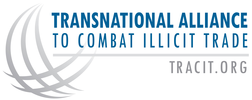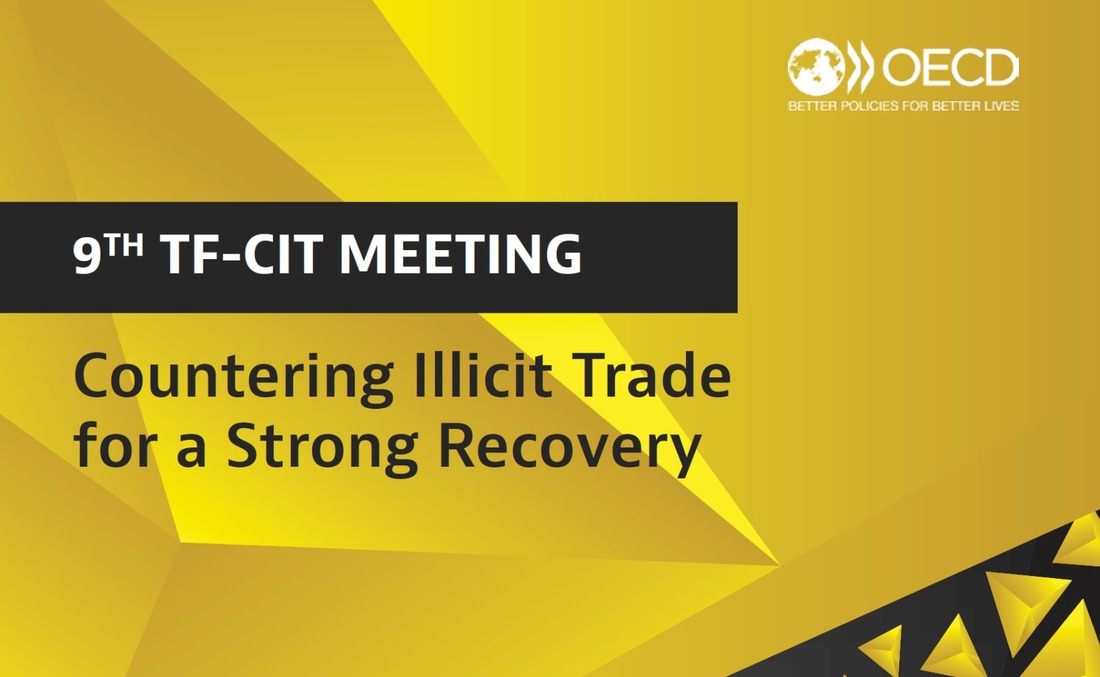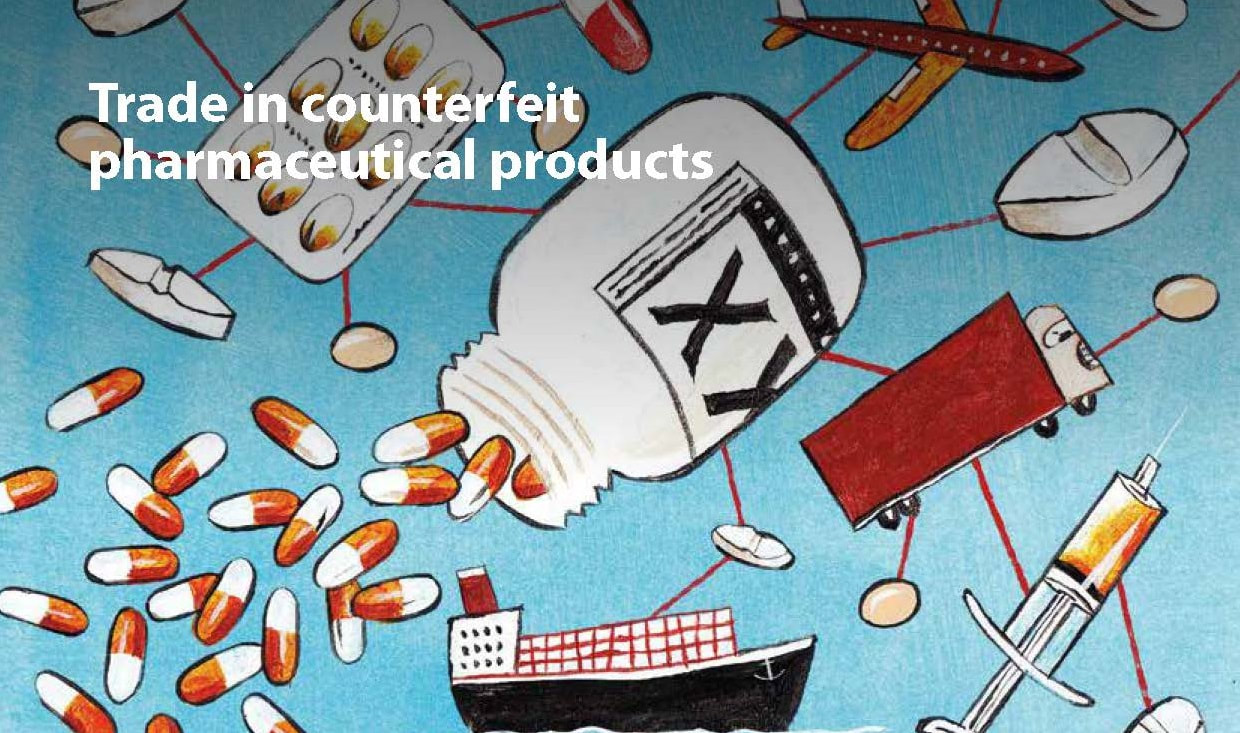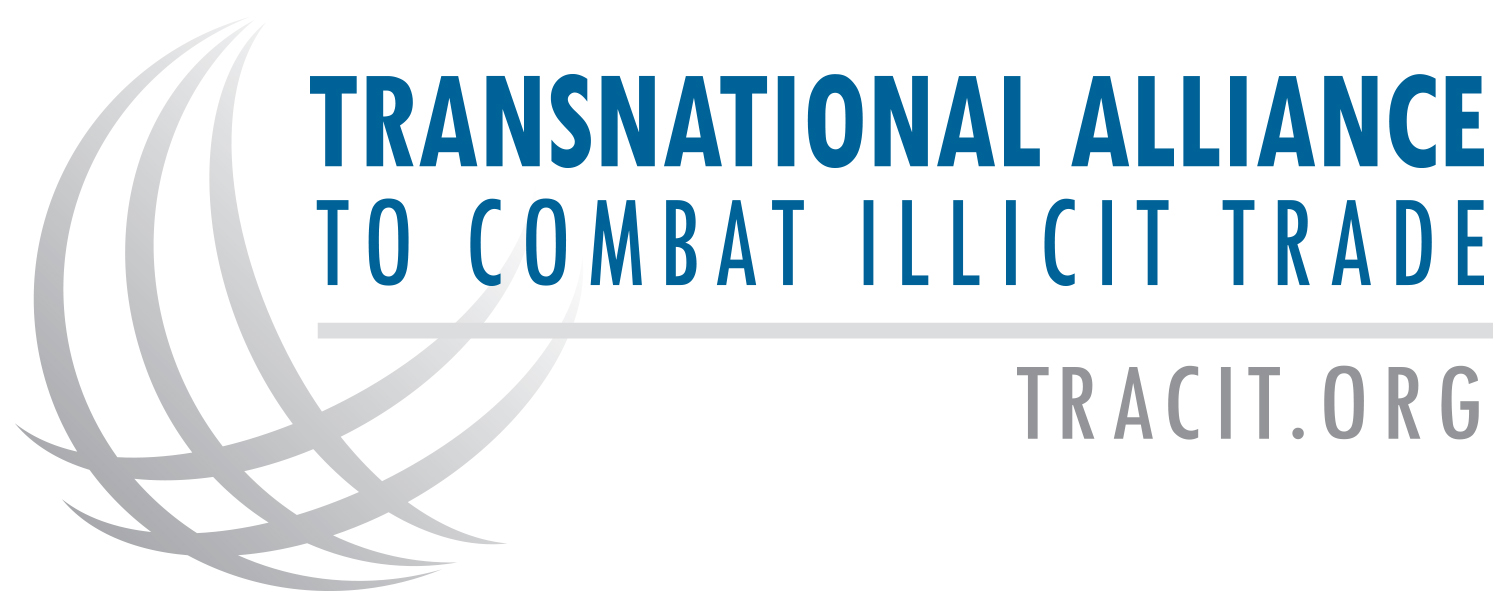The new report shows that containerships carry more than half of all seized counterfeits and provides an urgent and compelling need for governments to set new standards for mitigating the abuse of international maritime shipping lines by illicit traders.
The Task Force meeting also addressed high-risk areas of the economy—pharmaceuticals, alcohol, food, tobacco and counterfeiting online—that were particularly impacted by illicit trade during the pandemic, and the need to evaluate best practices to improve regulations and mitigate the problem. Moving forward, TRACIT believes the Task Force should build upon the impressive body of quantitative work to more effectively deliver on its High Level Risk Forum mandate to ‘design and promote good practices in public policies as a means to reduce and deter trafficking and smuggling activities,’ and to map policies and practices and develop metrices on the governance gaps that foster illicit trade. This includes cultivating the work of the task force within OECD member governments – to ensure that work is directed to the right national agencies and that messages and guidance properly percolate throughout national capitals. For example, the OECD Council’s Recommendation on Countering Illicit Trade: Enhancing Transparency in Free Trade Zones contains much-needed guidance for OECD member states. Success here will depend on work engagement, adoption and implementation by OECD governments. The OECD has changed the game here, now it’s time from member state to see it through. The Task Force should also look at ways to increase engagement and share its experience with non-OECD Member States that value the expertise of the OECD and look to it for leadership and guidance. This includes regions such as ASEAN, which is in the process of addressing illicit trade and establishing its own policy standards. Finally, I was pleased by the continued engagement with the private sector - especially those legitimate industry players most impacted by illicit trade. Industry partners represented by the Anti Illicit Trade Expert Group of the Business at OECD share the common goal of countering illicit trade and provide critical market knowledge, supply chain expertise and technical innovation. The ongoing public-private sector dialogue ensures a more effective approach to countering illicit trade by balancing incentive setting, taking into account industry-specific sensitivities and competitive advantages on private and public sides. If there is one thing we have learned from the Task Force’s work and accomplishments over the last nine years is that mitigating the cross-sectoral challenge of illicit trade is going to require an international, coordinated, response by all affected parties – and a lot of hard work! Jeffrey Hardy Director-General, TRACIT I’d like to draw your attention to a new study on Illicit Trade in Fake Pharmaceuticals. It was published today by the OECD Task Force on Countering Illicit Trade (TF-CIT) and the European Union Intellectual Property Office (EUIPO). It shows that international trade in counterfeit pharmaceuticals reached USD 4.4 billion, representing 2.2 % of trade in pharmaceuticals. The report arrives at a particularly disquieting, yet very relevant time. In the midst of people taking extreme steps to stay safe from the Covid-19 virus, we are being exposed to waves of counterfeit and falsified Covid-19 masks, hydro alcoholic gels, testing kits and possible treatments.
This is an upsetting example of the extreme steps counterfeiters will take to profit from the misfortune of others. And it is an urgent reminder that governments must step up enforcement against illicit pharmaceuticals. The OECD and EUIPO report certainly presents a compelling imperative to protect patients, healthcare systems and the wider society from the negative impacts of ingesting substandard, falsified, unregistered and unlicensed medical products. With this body of work, policymakers now understand the nature and scale, the size and scope, the shock and horror of illicit trade. But is OECD willing to follow up by evidencing a strong international policy framework that will provide meaningful tools to governments—inside and outside OECD—to help them clamp down on illicit trade in pharmaceuticals? TRACIT thinks that it is incumbent on the OECD Task Force to Counter Illicit Trade to identify, analyze and disseminate effective policy and good practices to assist OECD member states to better regulate illicit trade in pharmaceuticals. This is fully consistent with the organization’s mandate to design and promote good practices in public policies, to identify the governance gaps that facilitate illicit trade, and to reduce and deter illicit trafficking and smuggling. The OECD’s quantitative studies are extremely useful, but now is the time for OECD to demonstrate the policy leadership that it’s renowned for. Whether it’s the horror of falsified anti-malaria medicines or today’s fake, governments inside and outside OECD are hungry for effective public policies, and the task force has an important opportunity to fill this gap by mapping the best of the best and helping us close governance gaps that foster illicit trade. Jeffrey Hardy Director-General, TRACIT
|
About tracit talking pointsTRACIT Talking Points is a channel we’ve opened to comment on current trends and critical issues. This blog showcases articles from our staff and leadership, along with feature stories from our partners in the private sector and thought-leaders from government and civil society. Our aim is to deepen the dialogue on emerging policy issues and enforcement measures that can be deployed against illicit trade.
Categories
All
Archives
February 2024
|
|
Transnational Alliance to Combat Illicit Trade (TRACIT) is an independent, non-governmental, not-for-profit organisation under US tax code 501(c)(6).
© COPYRIGHT 2024. ALL RIGHTS RESERVED. |
Follow us
|



